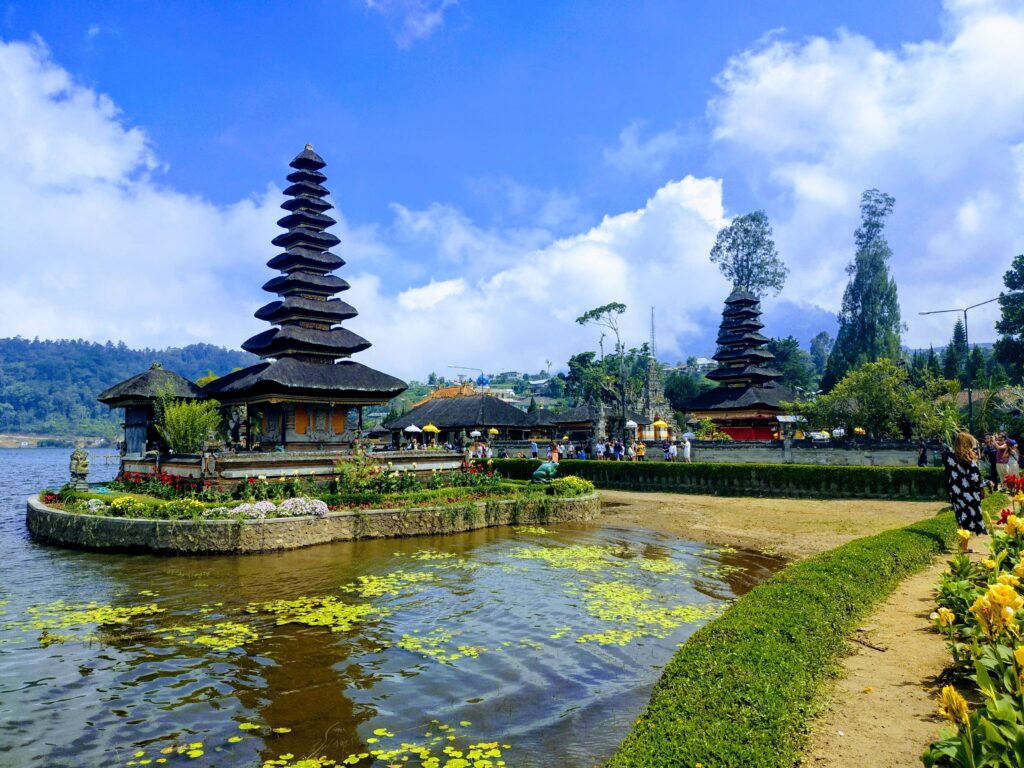Halal tourism in Indonesia has been gaining significant momentum over the past decade, as the country aims to position itself as a leading global destination for Muslim travelers. Halal tourism caters specifically to the needs of Muslim tourists, ensuring that services and amenities align with Islamic principles. Here are some key aspects of halal tourism in Indonesia:
1. Halal-Friendly Destinations
Indonesia has actively developed destinations that are halal-certified or offer Muslim-friendly facilities. Popular destinations such as Lombok, known as the “Island of a Thousand Mosques,” Bali, and Jakarta provide a range of halal-friendly accommodations, prayer facilities, and halal dining options.
2. Halal-Certified Hotels and Resorts
Many hotels and resorts in Indonesia cater to Muslim travelers by offering halal-certified kitchens, non-alcoholic environments, and facilities for performing prayers. These accommodations also offer separate swimming pools, spas, and recreational activities for men and women.
3. Availability of Halal Food
Indonesia, being a predominantly Muslim country, provides a wide variety of halal-certified food options across its islands. From street food to fine dining, visitors can enjoy traditional Indonesian cuisine without concerns about halal compliance. There are many restaurants and food outlets displaying halal certifications to reassure Muslim travelers.
4. Cultural and Religious Attractions
Indonesia boasts numerous cultural and religious sites that attract Muslim travelers. For example, the Istiqlal Mosque in Jakarta, which is the largest mosque in Southeast Asia, and the beautiful Grand Mosque of Baiturrahman in Aceh, are significant landmarks. Indonesia’s Islamic history and local traditions make it an attractive destination for Muslim heritage tourism.
5. Tour Packages and Facilities
Halal tourism in Indonesia includes curated tour packages that respect Islamic practices. These packages often feature prayer schedules, stops at mosques, halal meals, and accommodations. Travel agencies offer customized itineraries to ensure that the entire travel experience is convenient for Muslim tourists.
6. Muslim-Friendly Transport Services
Transport facilities are increasingly geared towards Muslim travelers. For instance, some airports provide dedicated prayer rooms, and domestic airlines often offer halal meals on their flights. Additionally, tourist buses and cruises also consider the needs of Muslim tourists with scheduled prayer breaks.
7. Support from Government and Industry
The Indonesian government has played a vital role in promoting halal tourism. The Ministry of Tourism has initiated various programs and events, such as the World Halal Tourism Awards, to highlight the country’s commitment to the sector. Local tourism boards work closely with businesses to secure halal certifications and promote Indonesia as a global halal tourism destination.
8. Growth and International Recognition
Indonesia’s efforts in developing halal tourism have not gone unnoticed. It has consistently ranked high in the Global Muslim Travel Index (GMTI), which evaluates the readiness of destinations for Muslim tourists. Lombok, for example, won the title of World’s Best Halal Tourism Destination in several years.
9. Focus on Wellness and Spiritual Tourism
Halal tourism in Indonesia is not just about compliance; it also emphasizes wellness and spirituality. Many destinations offer activities like Quran recitation retreats, halal spas, and meditation sessions that align with Islamic values.
10. Educational and Cultural Programs
Indonesia is also focusing on offering educational tours and cultural experiences for Muslim travelers. Visitors can engage in Islamic heritage tours, Quran learning sessions, and events celebrating Islamic traditions and festivals, like Ramadan.
Indonesia’s proactive steps in promoting halal tourism have strengthened its appeal to Muslim travelers worldwide, offering a rich blend of culture, natural beauty, and faith-based experiences.
Contact team Halal tourism for customized packages and other guidance

